It’s no secret that the terms “Orwellian” and “alternative facts” have come up a lot lately. Or that George Orwell’s classic book 1984, which depicts a dystopian society where the Ministry of Truth spouts “alternative facts,” has been climbing the bestseller charts in response to this era in America.
While it would be easy to suggest reading the rest of the Orwell canon (which you absolutely should), these books from all different authors will give you more Big Brother, rebels with a cause, and dystopian worlds you hope you’ll never have to live in...
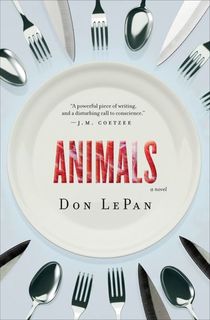
Animals
This devastating dystopian novel set roughly a hundred years in the future explores a mistreatment of animals which extends to mankind. When factory farming and an abuse of antibiotics causes waves of mass extinction through the ranks of mammals, fowl, and fish that humans have relied on since the dawn of time, society undergoes a desperate shift in pursuit of survival.
Those humans deemed less functional are denied their equal share of resources, marking them as a subhuman class. Unfortunately, the subhuman are considered animals, and in this twisted future, all animals are food.
RELATED: 10 Shocking Dystopian Fiction Books
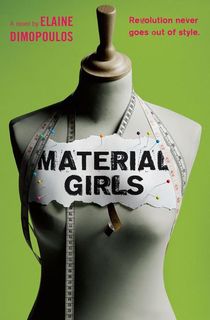
Material Girls
Putting the obsessive nature of fame and consumerism under the microscope, Material Girls follows teenagers Marla Klein and Ivy Wilde. In the world of this novel, the course of culture is decided by the whims of teenagers.
Marla—just sixteen years old—works for a top of the line fashion label, deciding the latest fashion trends. Ivy is a pop star, tasked with making Marla’s trends popular amongst her fans.
It may seem like these trend-setting young women are in control, but in the grand scheme of things they’re just two pawns in the corporate machine. As questions arise in their minds about society’s aggressive consumption, they start to rebel against a pervasive and toxic industry and culture.
RELATED: How Dystopian YA Continues to Evolve With the Times
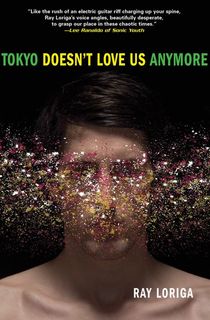
Tokyo Doesn't Love Us Anymore
Ray Loriga’s compelling novel dissects the human race’s dependency on pharmaceuticals. In a near-future dystopia, a salesman for The Company travels all over the world pushing a hot new drug which can erase memories.
It doesn’t matter what you want gone—one stupid mistake or years of endless suffering—the choice is yours. But what happens when the salesman starts dipping into his own product?
Lost in a maze of forgotten memories, the protagonist of Tokyo Doesn’t Love Us Anymore can’t even keep track of what he’s supposed to have lost. In search of his wife, in search of the truth, in search of something better — the salesman is adrift in a chemical haze.
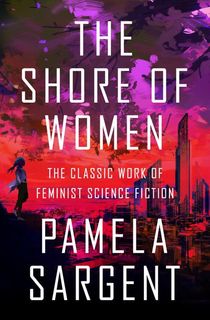
The Shore of Women
It’s no secret that one of the biggest conflicts unfolding in front of us is that of reproductive rights, a topic not seen in Orwell’s writing. After the inevitable nuclear holocaust in this Pamela Sargent novel, women become the rulers of what is left of the known world.
Using the technology they have created, the women banish men from their cities and use them solely to advance the human race. This story puts the role of gender empowerment and societal propaganda into focus and might hit close to home, as all good dystopian novels do. When Birana questions the authority of her elders, she finds herself banished like the very men she was brought up to hate.
Soon, she finds Arvil and begins an emotional journey to heal in a rather damaged world.
RELATED: Books Like The Handmaid's Tale
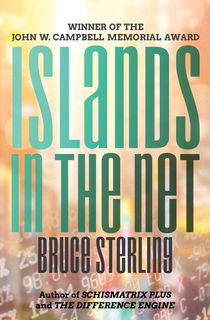
Islands in the Net
The last few years have shown that science fiction might soon resemble reality.
Hacking countries and corporations seemed to live only between the pages of paperback novels from the 60s and 70s. But Islands of the Net, written by the veteran Bruce Sterling, forecasts a future where electronic terrorism is normal and hacking is as common as walking down the street.
In the near future, businessmen won’t run countries; countries will be replaced with businesses themselves. But power is power, and those who try to attain and hold onto it will resort to the only thing that works—killing any and all in their way.
Laura Webster witnesses a foreign representative assassinated right in front of her, and responds by attempting to broker a peace. Caught between global conspiracies and a data war, she must try to find peace and a way to survive.
RELATED: 7 Visionary Quotes from Sci-Fi Futurist Bruce Sterling
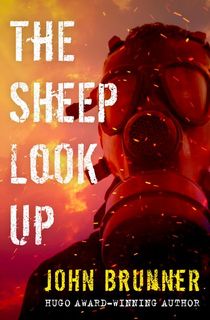
The Sheep Look Up
We can rebuild roads and bridges, buildings and technology. We cannot rebuild the planet. John Brunner’s stunning novel hits too close to home. Air pollution requires the daily use of a gas mask, new diseases grow like flowers, and the water is undrinkable.
For many, there is no choice but to survive. With a corrupt government and corporations fighting over the profits from the necessary goods to survive, life isn’t looking too good. How far would you be willing to go to save the little you have left?
Brunner asks this question with the journey of Austin Train, a disillusioned academic who asks to help violent environmental activists with their cause.
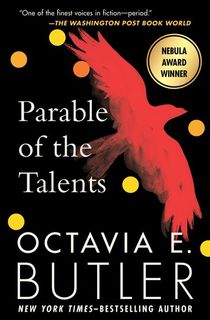
Parable of the Talents
Octavia Butler, one of the highly touted queens of science fiction, creates a beautifully detailed world that echoes our very own. Parable of the Talents tackles the big questions of religious fanaticism in a future that is far from perfect. After the world ends, society tries again. Acorn is one of those attempts.
Lauren Olamina founded this community with a religion she created called Earthseed, and has kept the place safe for several years. The sense of normalcy she brings to the community is suddenly shattered when a young and aspiring leader, Andrew Steele Jarret, begs the country to return to better times, waxing nostalgic on a world with a very particular (and familiar) mindset on what makes a good American.
Butler, as always, brought us the future. Now that it’s here, we should take a look at what to do next.

Brave New World
If 1984 wasn’t on your required reading list in high school, then Brave New World by Aldous Huxley certainly was. This literary classic weaves a dystopian story about genetically engineered humans, extreme technological advancement, pharmaceutical numbness, and authoritarianism which threatens human freedoms.
In the futuristic setting of World State, an obsession with and hierarchy based upon intelligence results in a lack of individualism and autonomy. When John—a natural-born outsider from the Savage Reservation—pays a visit to World State, his clash with the constructed culture sheds light on the many downfalls of this “perfect” future.
RELATED: 13 Classic Science Fiction Books Everyone Should Read

We
We by Yevgeny Zamyatin was actually an inspiration for Orwell’s 1984, and was an unfortunate predictor of some of Soviet Russia’s excessive follies. The citizens of OneState live in a city enclosed by glass.
Bound by the totalitarian rules imposed by the “Benefactor,” the people of OneState survive in an existence sucked dry of any passion or creativity. But one mathematician by the name of D-503 discovers that, not only does he dream in numbers, but he has an individual soul.
RELATED: 15 Insightful George Orwell Quotes

It Can't Happen Here
A book that some might call unfortunately relevant to today’s political scope, It Can’t Happen Here was written in the midst of the Great Depression. This novel follows the rise of charismatic and power hungry Berzelius “Buzz” Windrip to power as he wins the election for President of the United States.
Immersed in problematic rhetoric, incompetent appointments, and offensive rants, Windrip becomes a dictator in order to save America from itself. Promising high benefits to “real” citizens, Windrip makes it clear that he is the arbiter of who belongs.

The Circle
Mae Holland is like a lot of us—a young person in search of the perfect job at the perfect company. The Circle, a Facebook-like company with dark motives, is the Main Street of your Internet life: Streamlining your social media, email, bank accounts…everything.
Imagine wearing a tiny camera on you constantly for the sake of transparency! It is the only road on the information highway. Holland slowly begins the climb up the corporate ladder only to see the impact that the technology has. The influence social media is shown to have will make you think twice before sharing your intimate details.
This modern novel, deemed by many to be in the same tier of novels as Orwell, shows us why privacy is not only necessary, but worth fighting for.

Jennifer Government
Does a for-profit government sound too farfetched for you? In Max Barry’s novel, it’s a reality. A distant cousin of Orwell’s prophetic novel, Jennifer Government introduces the readers to a world eerily similar to our own…with a few upgrades.
Enter a world with no taxes, a privatized government, and worldwide customer loyalty programs. Barry expands on modern fears about capitalism, and takes them to an extreme degree. In this corporate espionage thriller, Hack Nike—in this world, you take the surname of the company you work for—is tasked by her employer to join an out-of-the-box marketing campaign.
To increase the popularity of a new product, she must kill people who attempt to buy the new shoe. A field agent, Jennifer Government, is then tasked with hunting down Hack Nike. It might sound crazy, but it’s also packed with humor and intrigue.
RELATED: 8 Freaky Predictions from Dystopian Novels That Have Come True

All the Birds in the Sky
In Charlie Jane Anders’ debut novel, readers are introduced to a magically infused San Francisco on the brink of the Apocalypse. Childhood friends Laurence, a computer whiz, and Patricia, a witch who can talk to birds, attempt to fix a world ravaged by climate change by using the powers and resources at their disposal.
As Laurence turns to science in an attempt to save humanity from a dying world, he and Patricia find themselves pulled into a fight against each other that neither asked for.
All the Birds in the Sky is a reminder of the power of strong friendships, and the lengths we humans may go to for the people and places we care about.
RELATED: 12 Enchanting Fairy Tales for Adults

Never Let Me Go
A deeply personal story between three young friends, Never Let Me Go has very disruptive undertones that will make us think deeply about the ethics of healthcare in the future. It’s one of those novels that stays with the reader long after the back cover is closed.
Kathy, Tommy, and Ruth all attend Hailsham, a boarding school that emphasizes good health and honest art—but they’re yet to know their real purpose. This story follows the characters as they grow up, and is appropriate for readers of all ages.
It dips its foot deep enough into the genre of dystopia to make one think about their own mortality. Sometimes the government isn’t responsible for asking the tough questions—society is.

Fahrenheit 451
Being a fireman in Bradbury’s world has a very different meaning than it does in ours. In Fahrenheit 451, books are burned freely and openly. It’s encouraged! (The horror!) Bradbury’s short novel is often found close to Orwell’s classic, and for good reason.
It covers much of the same ground of a world that could be. The book’s overwhelming theme is that of censorship, and provides a throwback to the historical book burnings of recent history — but the vigilant reader will notice that the underlying danger is in how we allow ourselves to get to that point. Bradbury also had some thoughts on the role of mass media in our daily lives. Some of these predictions are just plain eerie.

The Giver
What glitters is not always gold. Lois Lowry’s young adult novel is often regarded as a gateway book to the idea of utopias and dystopias. It has all the hallmarks of the genre: A very organized society with set roles, a content group of people who abide by the rules, and a fear of punishment for walking outside of the societal norms.
Everything is the same, even the weather and the visuals of color. They call it “Sameness.” Our young hero, Jonas, is set to become the next Receiver of Memory, a job that allows for one person to have the memories of all people, and is used as a guide of sorts for any decisions made by his community.
Here, Jonas learns the dangers of true equality that destroys any shred of individualism.
RELATED: 12 Sci-Fi and Fantasy Book to Movie Adaptations That Are Worth Watching
This post is sponsored by Open Road Media. Thank you for supporting our partners, who make it possible for The Portalist to celebrate the sci-fi and fantasy stories you love.









